- Transformative voyage: In May, a group of local people who experienced psychosis joined mental health staff from Black Country Healthcare NHS Foundation Trust on a sailing trip across the Irish Sea. This journey provided an opportunity for participants to learn to sail, connect with each other and work together for a common goal.
- Fundraising efforts: The trip was made possible by the fundraising efforts of the Early Intervention in Psychosis team at Black Country Healthcare. Brighter Lives Charity applied for £7.5k from trusts and foundations, and the charity also contributed a further £3.5k to fund this once in a lifetime trip.
- Impact on participants: The voyage had a significant positive impact on the participants, helping them build confidence and share their experiences. The trip highlighted the importance of hope and support in the recovery journey for individuals experiencing psychosis.
In May, a group of local people who experience psychosis joined mental health staff from Black Country Healthcare NHS Foundation Trust on a transformative voyage to recovery.
Departing from Milford Haven in Wales, the group, led by an experienced sailing crew from Cirdan Sailing Trust, sailed across the Irish Sea, up the coast to the Isle of Mann and then to Whitehaven, Cumbria. Throughout the journey, they battled sea sickness and waves, learning to sail, connecting with each other, and working together to reach their destination safely.
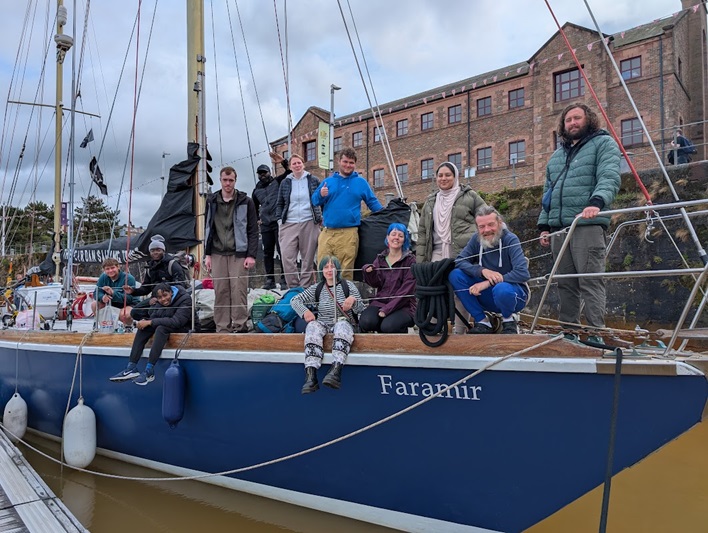
This incredible trip was made possible by the fundraising efforts of Black Country Healthcare’s Early Intervention in Psychosis team. They worked with the Trust charity to raise enough money for the trust’s Brighter Lives Charity to provide this once-in-a-lifetime opportunity. Their fundraising activities included a sponsored run by staff with the ‘Sandwell Couch Potatoes’ raising £1k.
The trip was also made possible thanks to successful applications from the Trust charity to trusts and foundations including The Sir John Middlemore Charitable Trust and The Hedley Foundation.
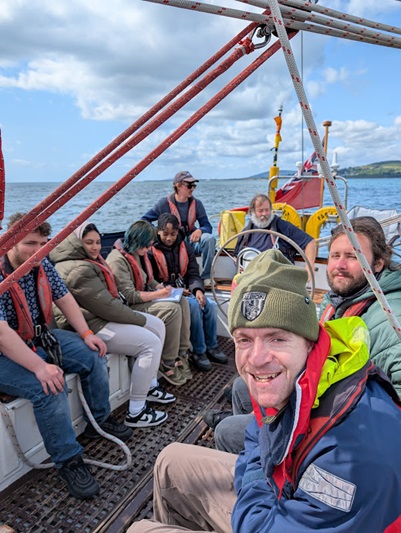
Emma Silverstone, Clinical Lead and Mental Health Nurse for the Sandwell team, shared her experience of the trip:
“It was a six-day adventure of sunshine and storms, cooking and eating together, bunk beds, and sharing stories of symptoms, hospital admissions, and coping strategies.
“You learn more about yourself and others on the sea than you ever could in a clinic room. As nurses, we were privileged to share this experience and see beyond the diagnosis of psychosis to the nine inspirational, creative, courageous survivors we sailed with.”
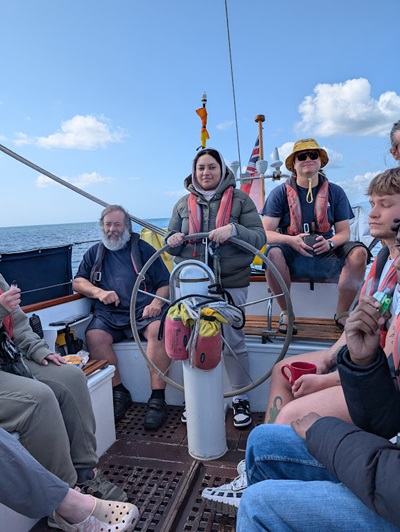
One of her fellow sailors, who has experienced psychosis, found the trip confidence-building:
“Knowing you can handle the up and down of the waves kind of helps me with the ups and downs of life, so in that regard, I’ve gained confidence.”
Another participant echoed this feeling:
“An incredible experience I feel privileged to have had! I came back feeling more confident about myself."
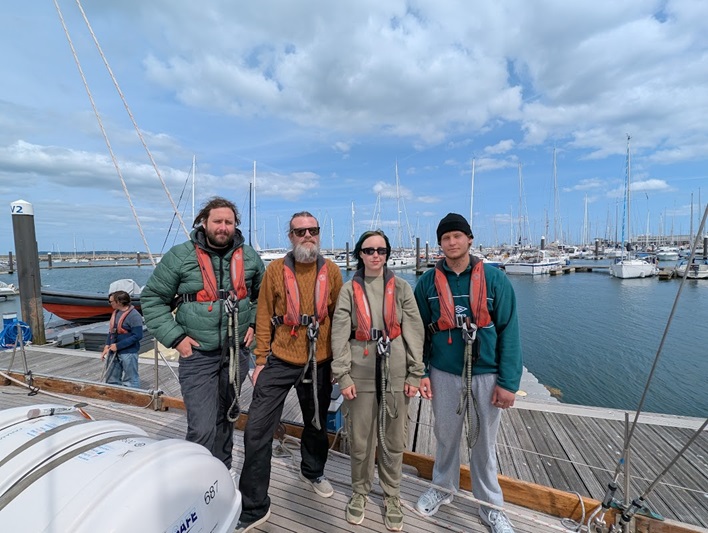
Psychosis can be frightening both for the person experiencing it and those around them. It can be an extremely isolating illness and misunderstandings about the condition can lead to stigma. A person experiencing psychosis might lose touch with what others consider reality and it can affect all aspects of life. People can completely withdraw from everyday life.
Symptoms of psychosis vary from person to person but can include hallucinations (sensory experiences that do not come from external factors), delusions (strongly held beliefs not grounded in reality), thought block and thought disorder, lack of motivation and energy, and difficulty in problem-solving and following basic tasks.
The Early Intervention in Psychosis team is a specialist community mental health team that supports people experiencing a first episode of psychosis for up to three years. Based across the Black Country, the team supports to promote recovery, prevent relapse, and help individuals and their families cope with their experiences. The team use innovative methods to engage and work with their patients.
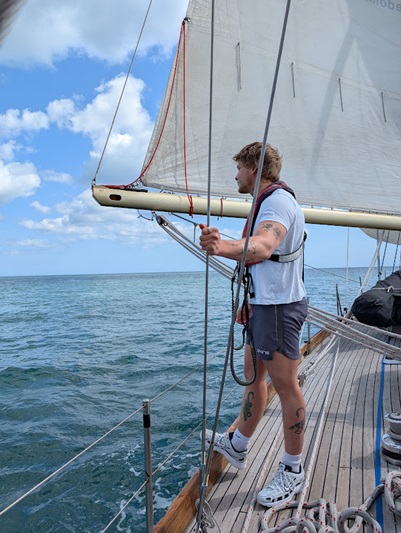
Laura Barney, Early Intervention in Psychosis Clinical Development Lead reflected on what participants shared about their experience:
“They have made friends, recently meeting as a group. One patient did not feel able to use local public transport before the trip. Last week he met with his new friends, catching the train independently. Some have asked for referrals for employment support as they now feel that they are worthy and capable of employment.
“Each person lit up when I asked them about their experiences; from learning to sail, cooking together and meeting someone else who had been through psychosis. Several have described this as a life changing event."
The main ethos of the Early Intervention in Psychosis team is hope. They believe there is nothing more rewarding than supporting people through their recovery so they can achieve their goals and live the lives they want to lead. The team also want to improve understanding of psychosis within the community. There is strong evidence that the sooner someone starts treatment (reducing the duration of untreated psychosis), the more likely they will recover quickly.

A person’s voyage to recovery may not always be plain sailing while navigating the calm and stormy seas of life, but with the right tools, support, teamwork, and confidence, they can reach their destination and enjoy the journey along the way.
As one participant fondly remembered:
"My mind still wanders back to the boat, three sails up, wind howling, beautiful sunny day, and a steady rock on the boat. It’s a wonderful feeling."

